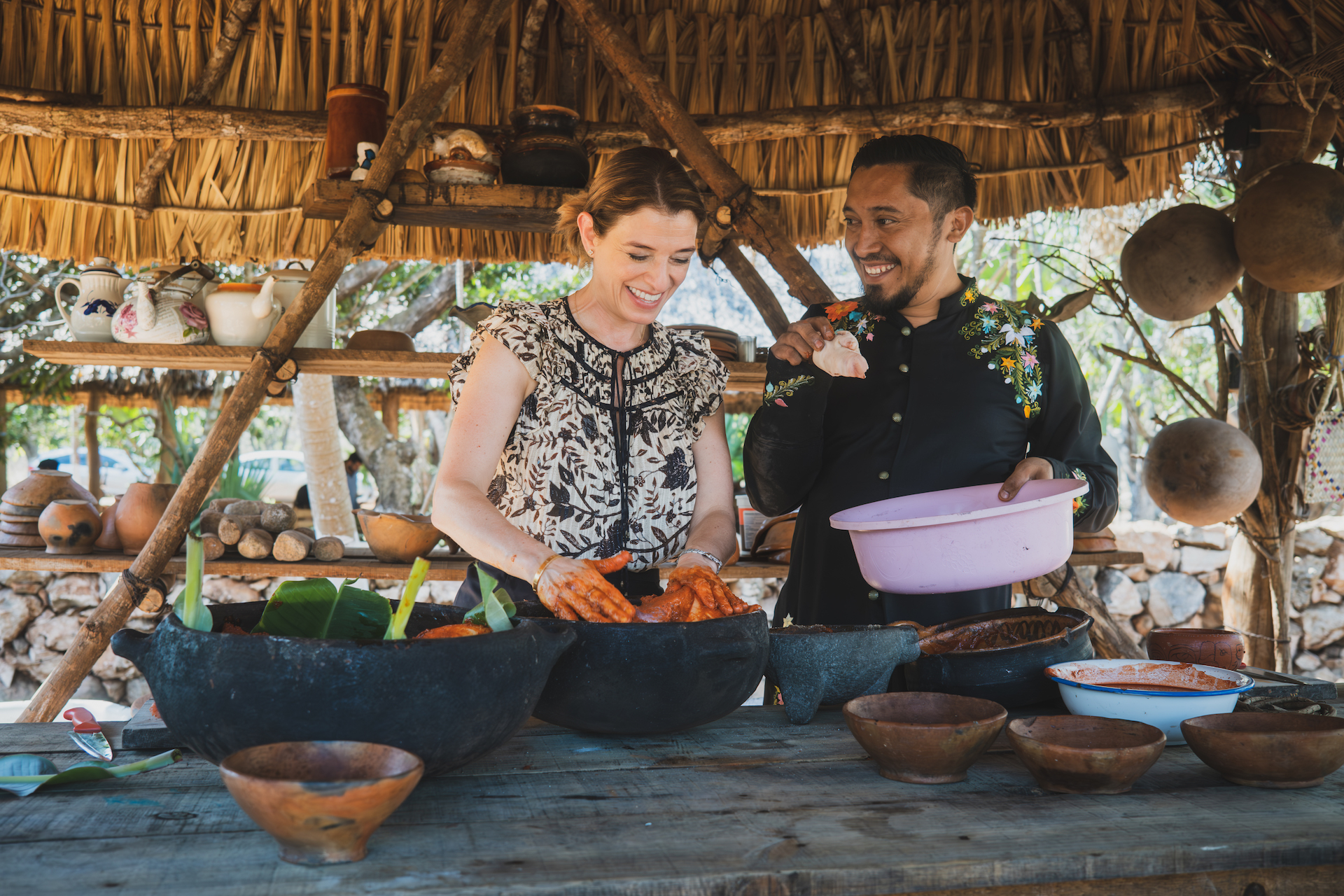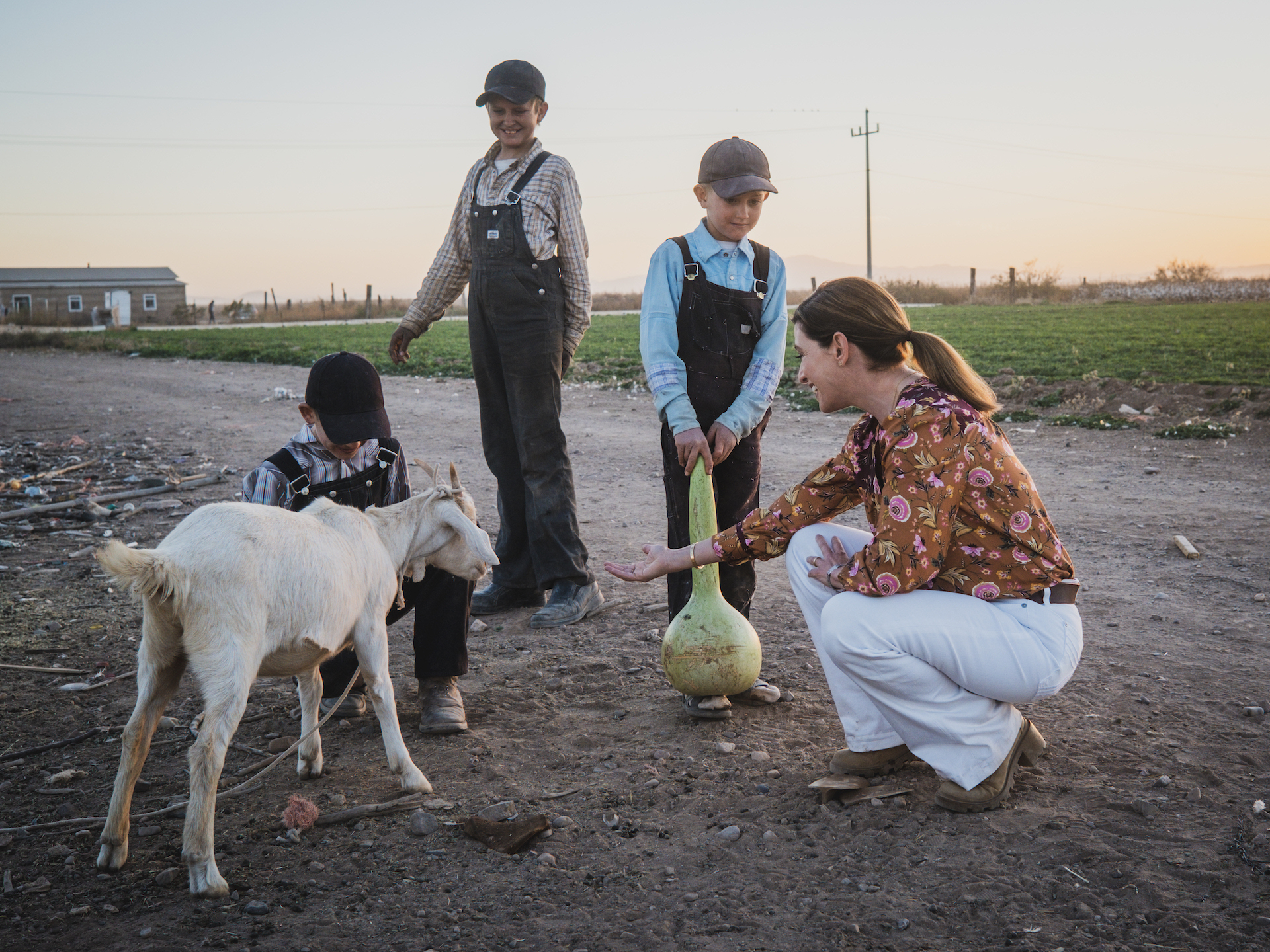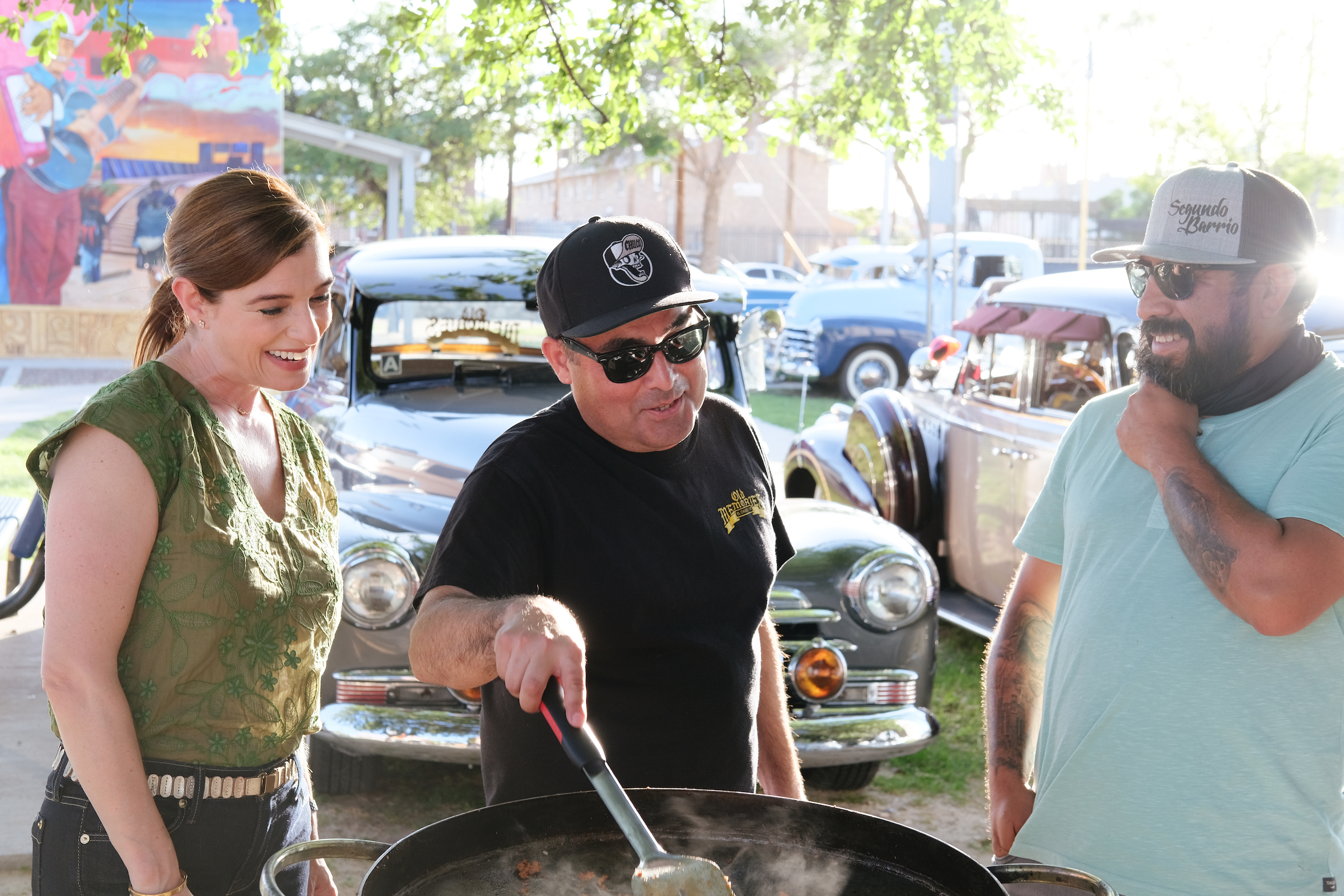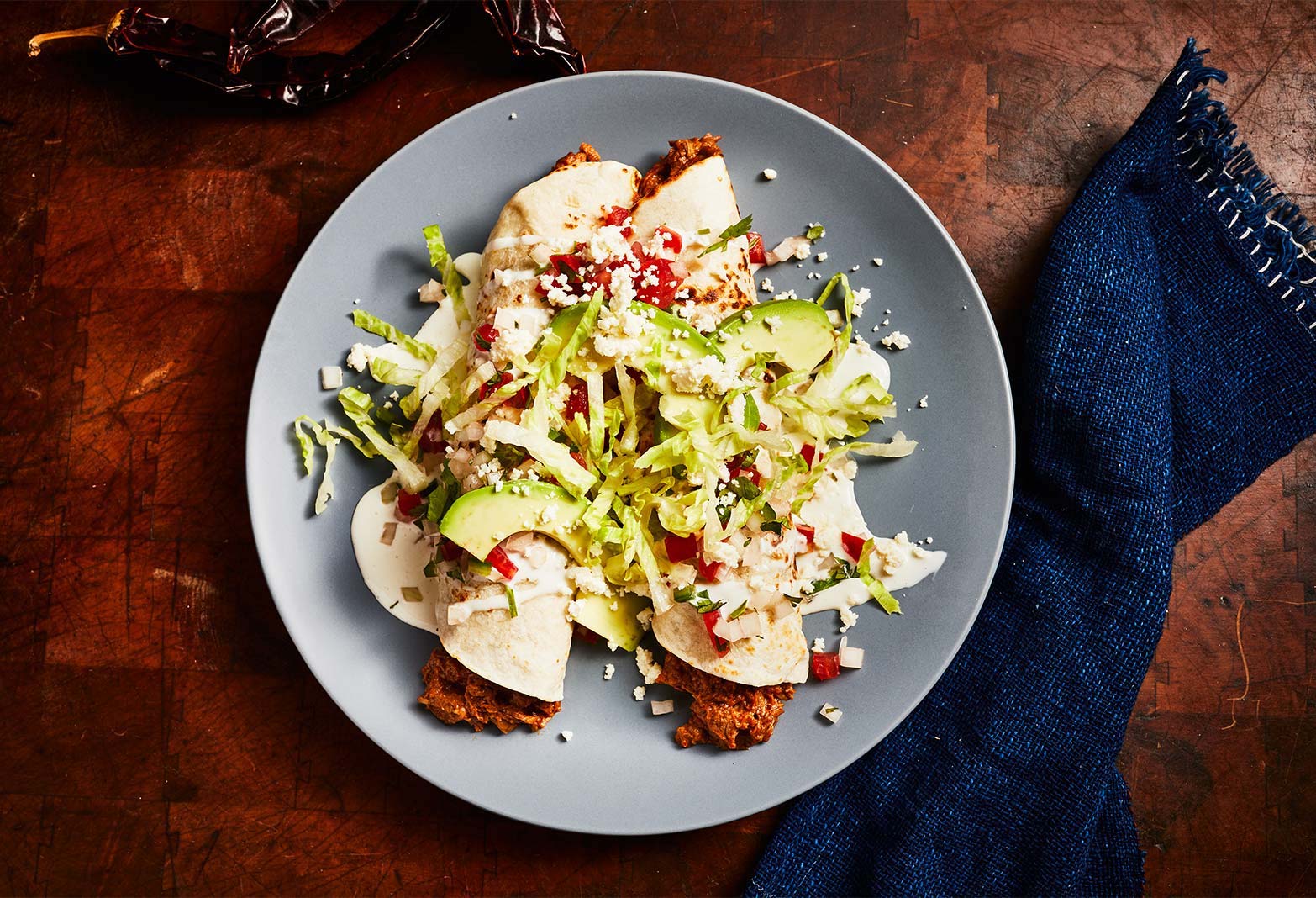Pati Jinich is the James Beard award-winning chef and Emmy-nominated TV host of two PBS television shows that go beyond cooking to create a strong connection between community, culture, and cuisine — the impacts of which were recently celebrated by Chicanos por la Causa, honoring Jinich as a celebrated advocate for positive change within the Latino community.
For Jinich, cooking goes beyond a daily task. It’s her love language — the way she shows she cares for her family. It also serves as a vehicle to share her Mexican culture with viewers. Jinich is originally from Mexico City, where she earned an undergraduate degree in political science, followed by a masters degree in Latin American studies when she came to the U.S. with her husband 22 years ago. Growing up with three older sisters who jumped into the food world much earlier, Jinich wanted to be different. The academic, the analyst, she said, contributing to ideas and debate. Cooking was a world away from her life and goals in academia.
“I was a terrible, horrible, awful, disastrous cook before I moved to the U.S.,” she fondly recalls. She worked as a political analyst at a think tank in Washington, D.C. It was that skill set of strengthening and building bridges in civic cultures between the U.S. and Latin American countries and connecting migrant communities to their home countries that led her to the world of cooking — an avenue that would allow her to contribute in more meaningful and sturdy ways, she realized.
“I realized that food was a space that allowed me to stay connected to Mexico while at the same time allowing me to grow deep and strong roots here in the United States,” she said. “I started seeing the beauty in food as a storytelling mechanism because my English was absolutely horrible when I moved here, and with food, I was able to share who we are and to share what we can do. I think that food is just what you get to when words are not that useful, when there’s gridlock, when there’s, you know, different views.”

Jinich enrolled at the L’académie de Cuisine in Gaithersburg, Maryland. Eventually, she started her first PBS show called Pati’s Mexican Table, now in its 12th season. Every season, Jinich travels to a different part of Mexico and opens a window into the culture and community through the noble lens of food. Falling in love with the power of food as a mechanism to tell stories, Jinich also realized her recipes could not only help viewers figure out what to cook on a Wednesday night, but also help them to expand their palates and knowledge of Mexican culture, and even help Mexican Americans tap into their culture and roots.
“Food is really like a library that you can open and you can taste worlds and cultures and cuisines and understand people,” she said. “[It] helps us bring the walls down, helps us lift veils, and it just allows us to become vulnerable and free [our] minds to connect.”
Her latest project, La Frontera with Pati Jinich, speaks to the 31 million people that live in borderland communities. From San Diego and Tijuana to Brownsville, Jinich saw firsthand how interconnected and collaborative, through respect and love, that these border communities truly are. And while the show rises above political tensions, politics are often unavoidable. Jinich observes frustration from people on both sides of the border between the U.S. and Mexico but notes that most desire collaboration and have a deep understanding of each other.
The show aims to shine a spotlight on the culinary advantages and nuances that can be celebrated and shared in these borderland cities. If you want an amazing fish taco, you go to San Diego. If you want aguachile, you go to Tijuana. For incredible flour tortillas, they’re in Mexico. If you want an unbelievable hamburger, it’s in the U.S., Jinich explained.

“It’s shining a light on their lives, on how they enrich not only one country but two, and everything that happens there. The joy, the beauty, the culture, the art, the entrepreneurship, and all of these stories that just get buried under the headlines,” she said.
Connecting cultures across food, music, dance, and other commonalities is soft power that radiates beyond political tensions and beyond what is taught.
“We’re taught how to think and what to think of others and all these categories. What’s right and what’s wrong, what’s left and what’s right, what’s black and what’s white, what’s correct and what’s not,” Jinich says. “I feel like it’s these spaces that help unlock doors and help us see the light in the shared connections.”
These connections are shared between Jinich and her three sons, all of whom learned to cook at a young age. She’ll get texts about what food they’re trying, what they’re sharing with their roommates and friends.
“It’s the way we give, the way we get to know the world, the way we understand ourselves and the world around us. Food is really powerful,” Jinich said.
If she had to choose a favorite dish to cook, it would be something that involves eggs. She explains there is great diversity in the way that eggs are prepared all across Mexico — drowned in salsa, scrambled with vegetables, as omelets, or cooked in ashes under tortillas — there’s no bad way to cook an egg. Jinich also enjoys soups and enchiladas and has a bit of a sweet tooth. And while she enjoys cooking, the time spent with family and friends lingering at the table after the meal is finished, called sobremesa, is gratifying, as well. Beyond her Mexican heritage, Jinich says that Italian, Korean, and Thai dishes are at the top of her list.

MORE TO DO
Jinich has enjoyed sharing her passion and says it’s been an incredible, humbling, and inspiring journey. It’s allowed her to connect with the Mexican diaspora in the U.S. and visit regions in Mexico that she has never been to before.
Her recent recognition from Chicanos Por La Causa came in the form of the 2023 Cause for Change Award, which honors distinguished leaders who have made significant contributions to the community. Jinich was awarded at a special celebration in Phoenix on Oct. 20. Former honorees include activist Dolores Huerta, actor and comedian Cheech Marin, and Arizona’s first Hispanic congressman, Ed Pastor.
Chicanos Por La Causa is one of the largest nonprofits in the U.S. It was established in 1969 by Arizona students and activists. Today, the organization hosts over 30 programs in health and human services, education, housing, economic development, and advocacy that impact more than two million lives across the Southwest.
Adding this award to her long list of accolades is an incredible honor, but Jinich says she isn’t finished yet and acknowledges the others who came before her who have done incredible work on behalf of the Latino community.
“Hispanos, Latinos, Chicanos, you know all the people from all the sister countries of the United States that are part of the Americas in that, whereas neighbors or immigrant communities have become such an integral part of the tapestry that is this country,” Jinich said. “I feel like I need to do more.”
The latest season of Pati’s Mexican Table is airing now. New episodes are released every Friday on PBS.org, air on PBS television, and are also available on Amazon Prime. Jinich will release her fourth cookbook in 2025.
Carne con Chile Burritos
By Pati Jinich
10 Servings
Ingredients
6 pounds pork or beef brisket cut into large pieces
2 garlic cloves
1/4 of a large white onion
3 bay leaves
5 Roma tomatoes
Kosher or sea salt to taste
15 chiltepin chiles
3 to 4 chiles de arbol stemmed, seeded, and rinsed
3 cascabel chiles stemmed, seeded, and rinsed
3 pasilla chiles stemmed, seeded, and rinsed
2 dried morita or chipotle chiles stemmed, seeded, and rinsed
4 ounces California, Colorado, or chiles de Sarta stemmed,
seeded, and rinsed
1/2 cup lard or vegetable shortening
1/4 cup all-purpose flour
10 large flour tortillas
Instructions
Place the meat, garlic, onion, bay leaves, tomatoes, and salt in a large, thick saucepan and cover with water by about an inch. Set over medium-high heat, bring to a boil, then reduce to a simmer and cook until the meat is completely cooked through and tender, about two to three hours. Remove the meat from the saucepan and chop into bite-sized pieces. Reserve the cooking liquid, discarding the bay leaves.
To make the red sauce, put all the chiles in a medium saucepan. Cover them with water and simmer over medium-high heat until they ́ve rehydrated and plumped up, about 10 minutes. Transfer to ablender along with the already sauteed tomato, garlic, and onion, as well as one cup of the reserved cooking liquid. Puree until smooth and strain through a fine-mesh sieve or strainer into the remaining cooking liquid. Stir to combine.
Melt the lard or vegetable oil in a Dutch oven or a large pan over medium heat. Once it’s hot, whisk in the flour and cook until it starts to smell toasty and has a sandy consistency. Add the red sauce, mix well with the whisk, and let it simmer for a few minutes until it thickens to a consistency that will coat the back of a spoon. Turn off heat. Add the chopped, cooked meat. Mix well to completely cover the meat with the sauce.
Spoon a couple of tablespoons of the meat with sauce onto large, flour tortillas and roll them to make burritos.

Read more Savor articles on Green Living.







Pati, I really enjoy watch your cooking shows. You are a great inspiration to many.
Please continue doing what you are doing.
God bless you.